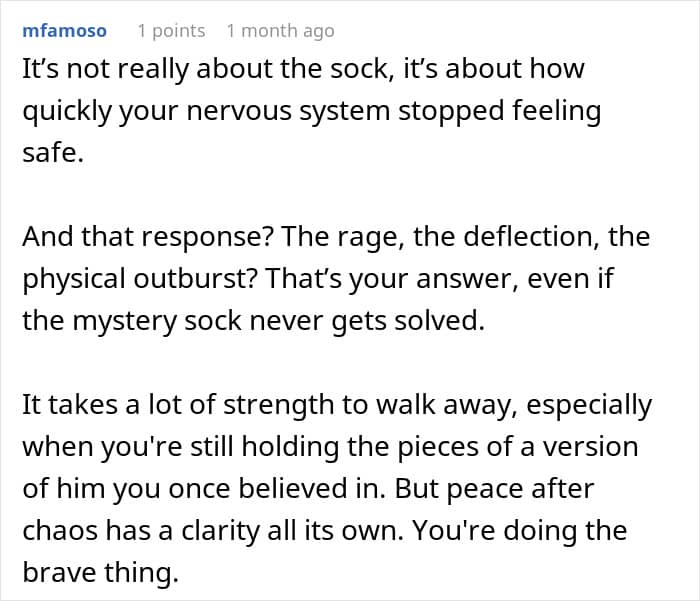A sock is usually just a harmless piece of clothing. But come home from a trip and find one that neither you nor your partner owns, and suddenly it feels like something else entirely—something far more personal. Something that hints at betrayal.
That’s exactly what this Redditor thought when she made the discovery. She decided to ask her boyfriend about it, expecting a simple explanation. What she got instead was a furious outburst, one that left her more shaken than the suspicion ever had.
Read on to see how it all unraveled, and what she ultimately chose to do.
RELATED:When she got back from her trip, the woman noticed an unfamiliar item of clothing in the house

Suspicious, she brought it up with her boyfriend, but his reaction was far from reassuring








Many readers agreed the boyfriend’s reaction felt off














But some believed the woman might have been reading too much into it





In a follow-up post, she revealed that he responded with a full-blown, explosive meltdown
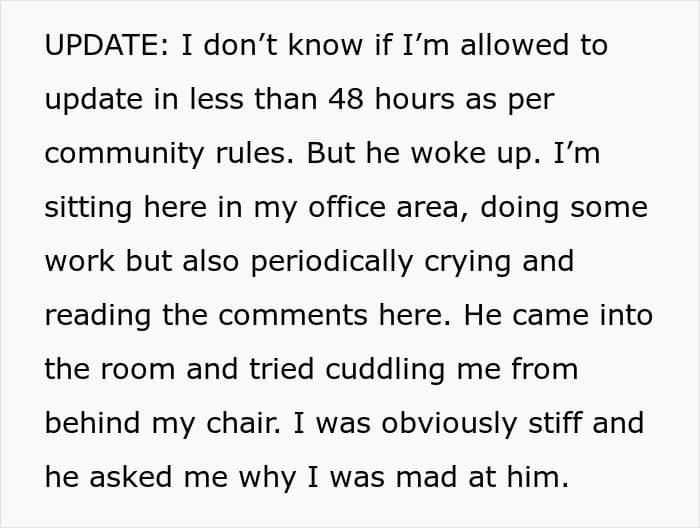





“Explosive anger is never about you, but the other person,” says expert

Anger, in general, is a normal human emotion. It’s our body’s way of responding to perceived threats or unfair treatment, according to Harvard.
In a healthy form, anger can be productive. But when it shows up too often or too intensely, especially in the way this woman’s boyfriend reacted, it’s often a sign of deeper issues.
So, what actually counts as intense? One study defines it as anger that’s triggered by small things, is hard to control, comes with frequent temper outbursts, or leads to loss of control, like hitting people or throwing objects.
The same research found that very intense anger isn’t overwhelmingly common. In the U.S., the prevalence of inappropriate or poorly controlled anger is 7.8%. However, it’s notably higher among men and younger adults, and is linked to decreased psychosocial functioning.
When that kind of temper shows up in your partner, things get complicated. You care about them, but seeing them in that state can be distressing, not just for their sake, but for your own safety.
Robert Taibbi, a Licensed Clinical Social Worker with 50 years of experience, says there are ways to approach a short-tempered partner, though the best response depends on the situation and the severity of their reaction.

First, he suggests reminding yourself that “this is not about you” and removing yourself from the blame. It’s easy to feel like you caused the anger, but in reality, the other person is wrestling with their own issues.
In the heat of an outburst, the real problem is often not the topic itself, but the emotion behind it. Reacting to the event directly can be like adding fuel to the fire. Instead, you could say something like “You are upset, tell me why?” “Be empathetic rather than aggressive. Again, you are trying to put out the fire; it doesn’t mean giving in,” advises Taibbi.
Once things have cooled down, that’s the time to address the underlying issues. This is when the brain is more rational and better able to work through the root causes.
Still, listening to your partner’s feelings doesn’t mean tolerating disrespect. You can set boundaries by calmly saying you’ll take a break, leaving the room, and returning later.
If things escalate to violence or threats, your safety comes first. Call the police if necessary. Know your bottom lines and have an exit plan so you don’t feel trapped. And if it becomes too much, walking away from the relationship may be the healthiest choice you can make.
Readers called it a major red flag, urging her to leave the relationship before things got worse



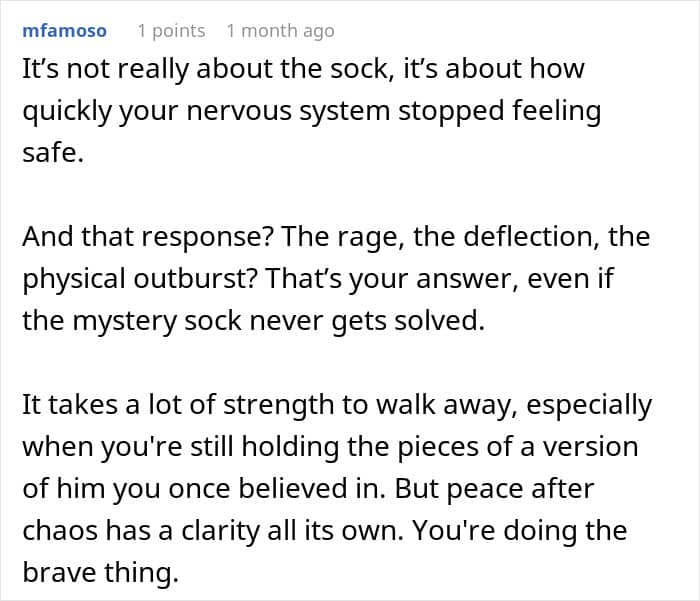
The woman later posted another update, saying she had broken up with him
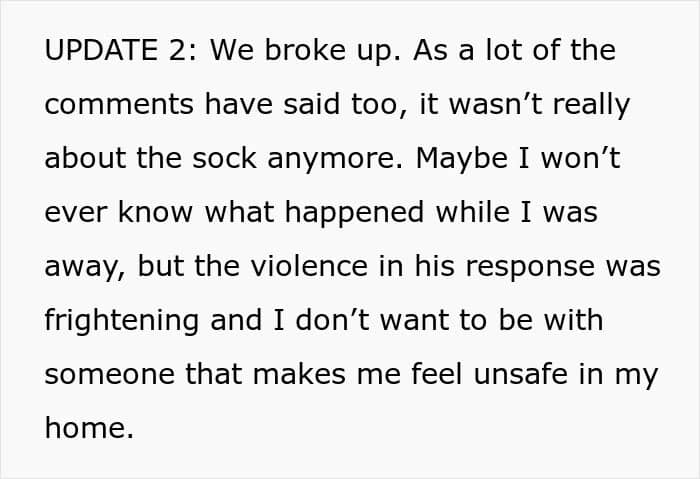


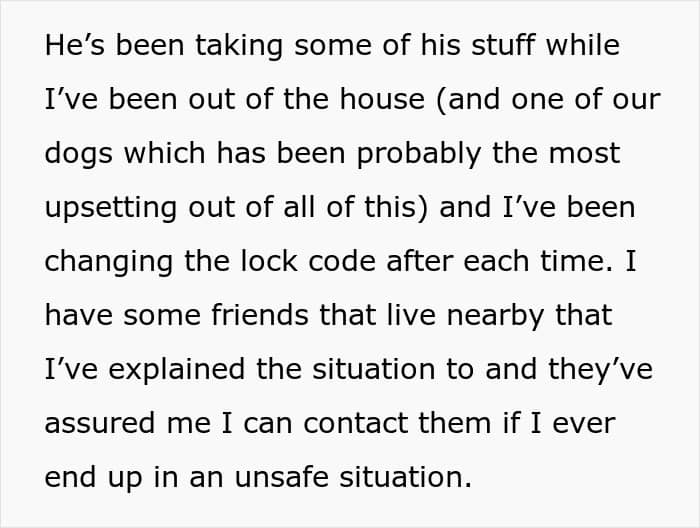
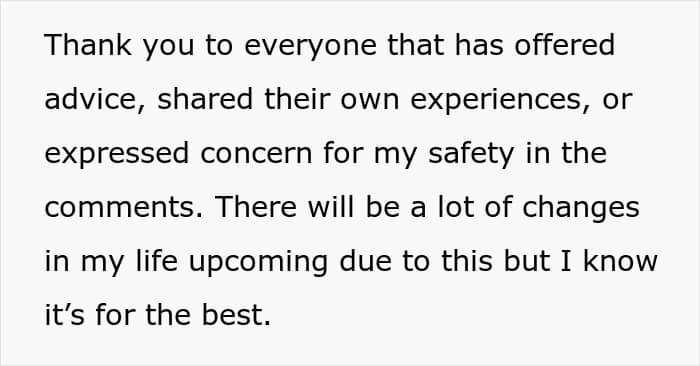
Readers were relieved to hear she was safe and no longer with him


